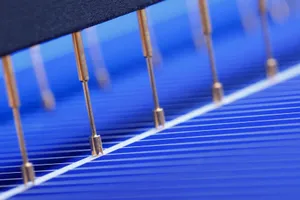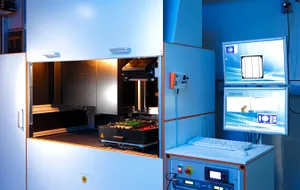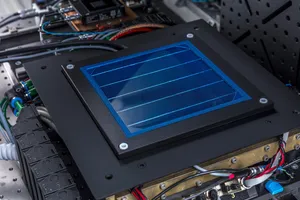The task of the Solar cell characterization research group is to develop new measurement techniques and build measurement systems that are necessary to gain a comprehensive understanding of the solar cells developed at ISFH, in combination with device simulations. To account for ongoing changes in cell design, existing physical models for the numerical simulation of solar cells and modules are continuously adapted and optimized. Based on electrical and optical device simulations, we identify areas for improvement and define strategies to further increase efficiency. We offer our analytical methods and simulation expertise as a service.
Key areas of work within the group include:
- Further development of measurement equipment and analysis methods for precise characterization of all relevant cell concepts—from busbarless and bifacial solar cells to backside-contacted solar cells and tandem solar cells.
- Analysis of losses and efficiency limitations in solar cells based on device simulations using experimentally determined input parameters.
- Analysis of the impact of different contacting schemes on the key characteristics of the current-voltage curve of solar cells.
- Determination of the optical and electrical material parameters required for our simulation calculations.
- Coupling of optical, thermal, and electrical simulations to better understand solar cell and PV module performance under real operating conditions.
- Analysis of the influence of changing weather conditions (e.g., cloud cover, diffuse irradiation) on the output power of solar modules.
Projects
PROMPT
Laser process and measurement technology for photovoltaic modules made of large-area silicon solar cells of the next generation
M12PV
M12 photovoltaic research infrastructure as a contribution to technological leadership in the production of silicon solar cells
FeatureGeneration
Generation of new measurement variables from IV measurement for industrial mass production
Contact person
Dr. Karsten Bothe
Head of PV department: Contracts and IP


